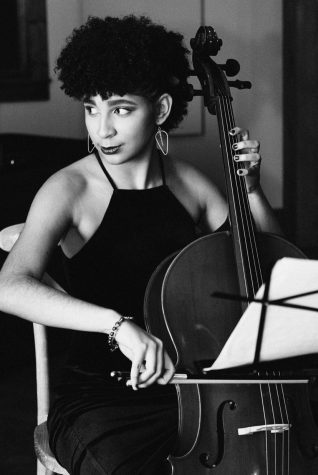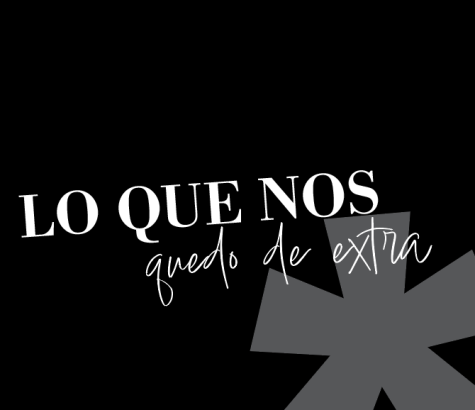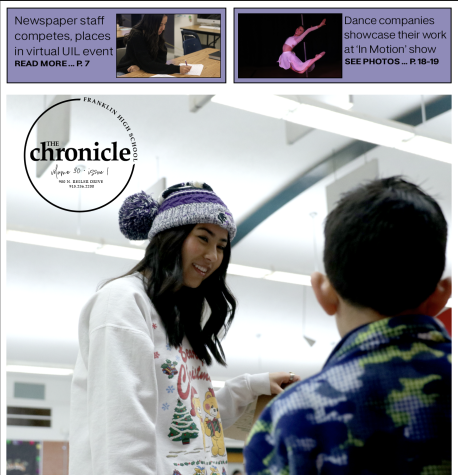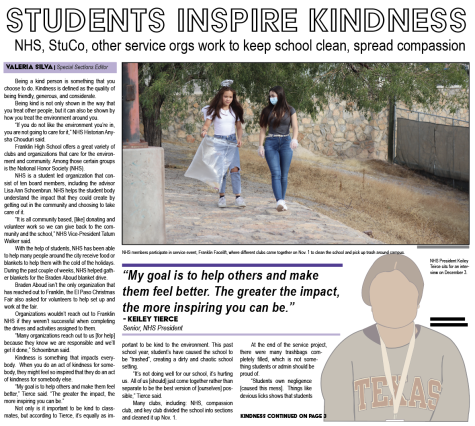Stop Touching Our Hair
February 25, 2022
‘I’m not a petting zoo’
Growing up, I was constantly told that I have beautiful hair and that I should be grateful to have such hair. but I’ve never felt like the beautiful person everyone thinks I am, because as they say, I’m being petted like a dog and people say my hair feels like they’re touching a sheep.
Not only is it degrading and violating personal space, but it is also a type of micro aggression.
Micro aggression, according to Vox, is more than “insults, insensitive comments, or generic jerky behavior,” it may also involve acts.
Although we understand your curiosity and “intention,” please leave it to children who have the right and innocence to be wondering.
It takes a lot of time and work to get our hair the way we want it, no matter how large or small it is. You’re really making our hair frizzier or destroying our curls when you touch it.
You may not realize how much you did, but simply by doing that, you have ruined someone’s hair for the rest of the day and their mood.
Senior Elizabeth Ramos noted that she has had to work really hard to have her hair done in time for a silver stars performance.
A random student touched her hair when it was already done for a performance and commented, “It’s nice and fluffy,” before walking away as if nothing had occurred.
“I really just feel upset about it. I mean, people think that they can bring my hair just because it looks nice, which it’s really rude and disrespectful,” said Ramos.
This isn’t just a problem with students this extends to educators grabbing students’ har and treating them like experiments for their future.
When Senior London Barlow was a middle schooler, an educator told her that her husband were expecting. The teacher would constantly ask Barlow if she could see her hair because her ‘future child will probably have hair like yours.’
“She made comments that were very weird and very creepy,” Barlow said.
Some students have revealed that they must control their emotions in order to avoid. being labeled as the stereotype “angry black person.”
We, as humans, should not have to hide our feelings and justify why we’re upset.
this feeling and experience is commonly shared among people with these hair textures.
Sophomore Misha Ford put it simply.
“Please don’t touch our hair, It’s really touch our hair, It’s really hard to deal with,” Ford said.”You say you want our hair but you don’t really know what we go through every day to make it look goo and presentable.”
Junior Grace Oyetunde feels violated whenever someone touches her hair.
“[I want to say] ‘how dare you? That’s an invasion of someone’s personal space. It’s like walking up to someone and standing nose-to-nose with them.”
We may not say how we really feel to your face, but when we do, you become enraged and make excuses for touching our hair. You don’t get to tell us how we should feel after, and making us feel our anger and disbelief ins’t “valid.”
All we ask is for you to respect our space, our hair, and treat us like actual human beings who have feelings.
If your hair was constantly being grabbed and pulled at by strangers, you would feel like you’re a walking animal.
this isn’t about us being sensitive or overreacting, this is something we go through almost every week and we’re tired of being the zoo animals you perceive us to be. quite frankly, just ask if you can touch our hair and if we say “no”,then the answer is no and respect our decision.




